Eating apples is a smart part of a healthy lifestyle. But why are apples good for you? What is the nutritional value of apples? If you want a deeper look at the apple nutrition and health benefits, continue reading.
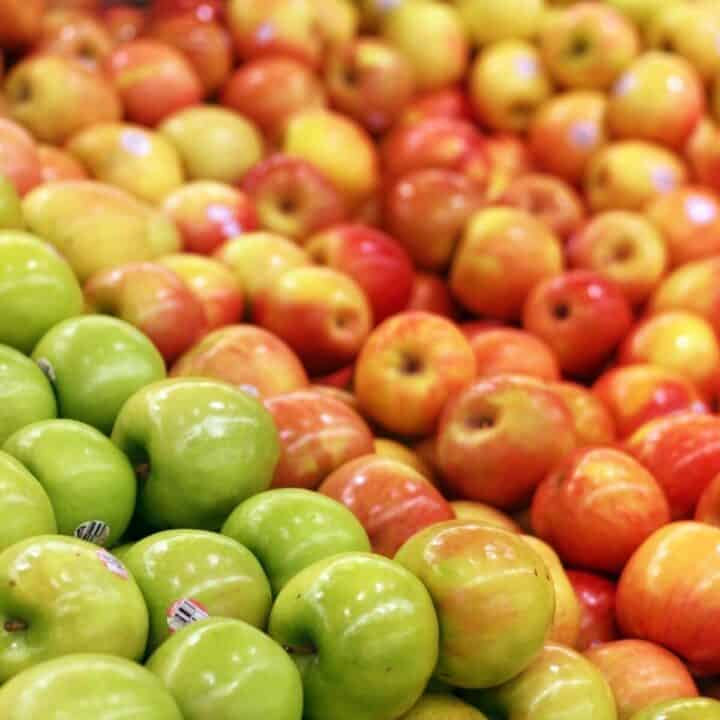
Table of Contents
Thousands of types of apples are grown in the U.S. Red Delicious, Golden Delicious, Fuji, Gala, and Granny Smith are among the most popular.
Apples are a member of the rose family. Apples are related to roses, along with pears, peaches, plums, and cherries. Apple trees take years to produce fruit. It takes 4-10 years for an apple tree to reach full production.
🍎 Nutrition Facts And Nutrition Value About Apples
Apple skins contain the antioxidant, anti-inflammatory pigment, quercetin, which is a powerful skin-care ingredient that helps defend against free-radical and UVB damage. Quercetin is also a natural antihistamine, which can help with seasonal allergies.
There's no easier way to add a dose of nutrition to your day than by crunching on a tasty apple. You probably first experienced its delightful flavor as a baby, when applesauce introduced you to real food.
And now, whether it's a Granny Smith, a McIntosh, or a Red Delicious, you think of apples as old friends.
🩺 Apples: Health And Beauty Benefits
Grown throughout the world, apples are high in fiber, vitamins, minerals, and antioxidants. They're fat-free, cholesterol-free, and low in sodium. In short, eating apples is a smart part of a healthy lifestyle. An apple has about 80 calories.
Here's a fun apple nutrition fact. Apples are 25% air. Yep, 25% of their volume is actually air. Apples are less dense than water!
Continue reading to learn more about apple nutrition and how it can benefit your health. There are so many nutrition facts and value about apples you should be aware of. So what does apple do to the body?
✅ 7 Ways Apples Keep You Healthy!
Here are 7 health and nutrition benefits that apples provide for the body.
1. Apples Help With Bowel Regulation
You don't have to worry about staying regular anymore. Whether your problem is visiting the bathroom too often or not often enough, apples can help.
A British researcher, Dr. D.P Burkitt, believes one of the easiest ways to prevent all sorts of illnesses is to avoid constipation. He calls the diseases caused by chronic constipation "pressure diseases."
Appendicitis, diverticular diseases, hemorrhoids, hiatal hernias, and even varicose veins can all be caused by straining to pass small, hard stools.
Simply one apple with its skin contains 4 to 5 grams of fiber - the most important nutrient in keeping your bowels working like a well-oiled machine.
Keeping yourself regular without relying on harmful laxatives could be as simple as replacing that afternoon snack of potato chips or cookies with a crisp, delicious apple.
And think of the calories you'll save. The average apple has about 80 calories, while a serving of chips weighs in at 150 calories, and you'll get about 200 from just a few cookies.
But that's not all apples can do. They're also good for diarrhea, thanks to an ingredient called pectin. This carbohydrate has a congealing effect in your intestines, which helps firm things up and return you to normal.
Applesauce is actually the best apple product for diarrhea, since it's made without the high-fiber skin. But watch out for extra sugar. Some brands of applesauce dump a truckload of sweeteners into an otherwise healthy food, and too much refined sugar could make your diarrhea worse.
2. Apples Can Help Keep The Body Young
By now, you know that antioxidants can protect you from many diseases that seem to be part of aging. In fact, so many people are taking supplements for antioxidant protection, it's become a multibillion-dollar industry.
But the evidence shows that whole foods can do more for you than pills.
When scientists compared a 1,500-milligram vitamin C supplement to one small apple, the results were astounding - the antioxidant values were equal. Are you ready for this astounding nutrition value about apples?
That means a fresh apple has more than 15 times the antioxidant power of the recommended daily dose of vitamin C. And that's just for starters.
The researchers also found that an ordinary apple could stop the growth of colon and liver cancer cells in test tubes. Unpeeled apples were especially effective.
The question you need to ask yourself: Why waste money on flavorless supplements when you can get better antioxidant firepower from a sweet, crunchy fruit?
3. Cut Your Risk Of Heart Disease, By Eating Apples
Sometimes it's hard to remember which food is superb for which part of your body. The next time you pick up an apple, examine it carefully. It's shaped like a heart - and that should help you remember apples are good for your heart.
Do apples affect blood pressure? It's the magnesium and potassium in apples that help regulate your blood pressure and keep your heart beating steadily, and it's the flavonoid quercetin, a naturally occurring antioxidant, that protects your artery walls from damage and keeps your blood flowing smoothly.
In fact, adding flavonoid-rich foods like apples to your diet has been scientifically confirmed to lower your risk of heart disease.
There's proof of this in a study of Japanese women who ate foods high in quercetin. They were less likely to get coronary heart disease than other women, and had lower levels of total and LDL, or bad cholesterol.
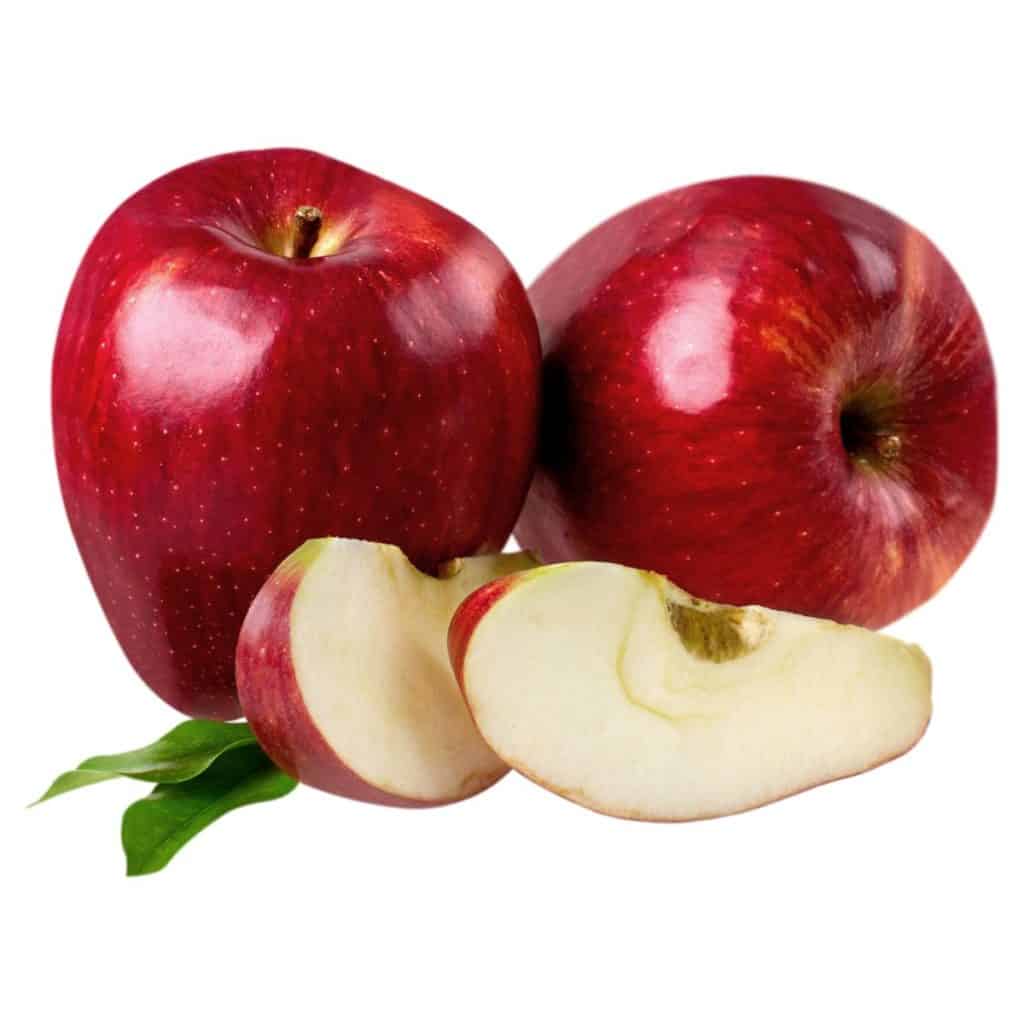
4. Cut Your Risk of Strokes With Apples
Apples are even a smart choice for helping avoid strokes. Scientists aren't sure which ingredient in this multi-talented fruit to credit, but the connection is clear - people who regularly eat apples are less likely to have strokes than people who don't.
5. Protect Your Joints By Eating Apples Regularly
In areas where fruits and vegetables make up a significant part of the diet, very few people get arthritis. Compare this to modernized countries, where fruits and vegetables have been replaced with fast, processed food, and you'll find that up to 70 percent of the population suffers from arthritis.
Just a coincidence? The link to this trend is in part to boron, a trace mineral many plants, including apples, absorb from the soil.
📥 GET THIS RECIPE IN YOUR INBOX 📥
If you eat like most people, you'll get about 1 to 2 milligrams (mg) of boron a day, mostly from non-citrus fruits, leafy vegetables, and nuts.
Experts believe you need anywhere from 3 to 10 mg a day to affect your risk of arthritis. To boost your boron intake, you'd have to eat more than nine apples a day. This is probably an unreasonable amount for most people, but don't despair.
Try pairing an apple with other boron-rich foods, like a few tablespoons of peanut butter and generous handful of raisins, and you'll not only have a delicious afternoon snack, but you'll make your joint-saving quota of boron.
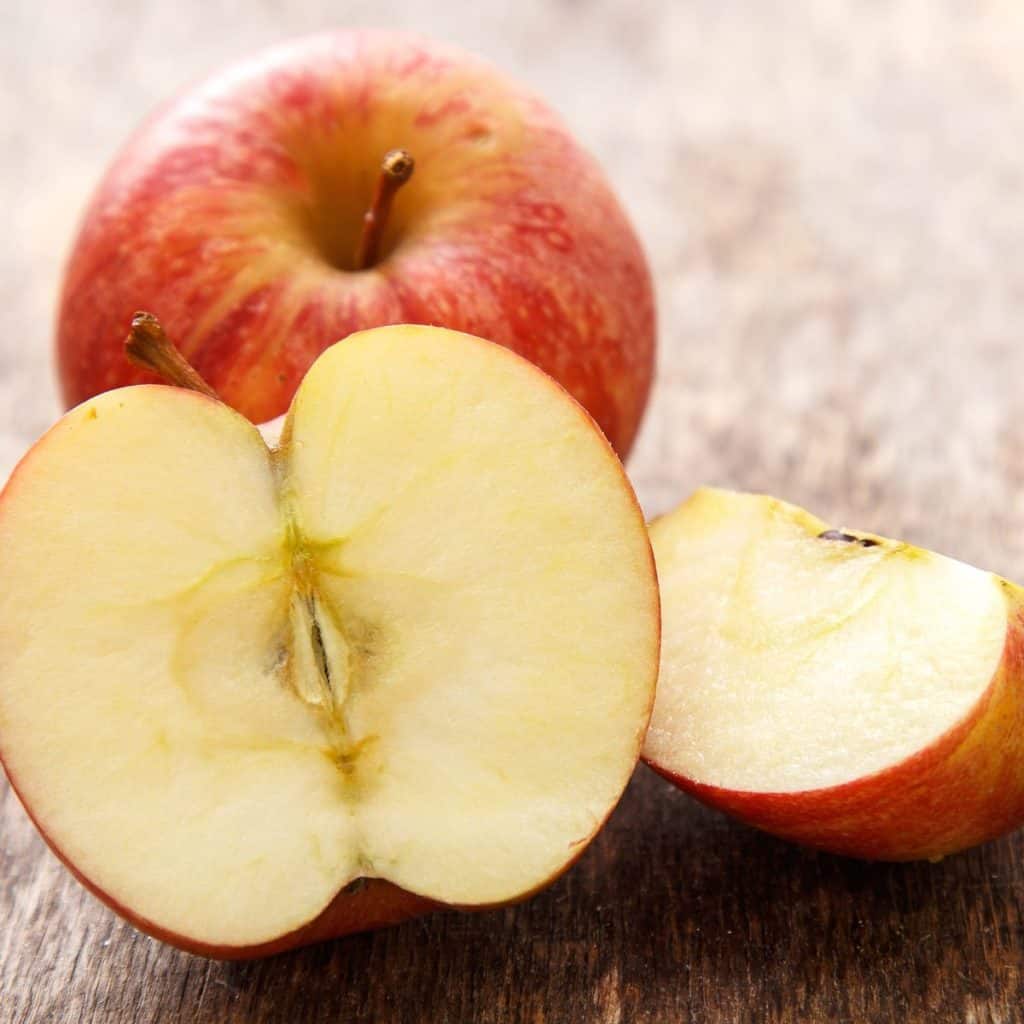
6. Apples Can Help You Breathe Deeply And Easier
Cigarette smoke assaults every day your lungs, air pollution, pollen, and other air-borne diseases. Perhaps you suffer from asthma, emphysema, or similar lung condition.
If all you want is to take a deep breath, then grab an apple. This is another wonderful nutrition fact about apples that I love.
A five-year study of more than 2,500 men from Wales found that those who ate five or more apples per week filled their lungs with more air than men who didn't eat apples (1, 2). Experts believe you might get some special protection from the antioxidant quercetin.
Unfortunately, eating apples can't reverse a lung condition you already have, but you might add a new line of defense against further damage.
Quercetin is known for its antioxidant activity in radical scavenging and anti-allergic properties characterized by stimulation of the immune system, antiviral activity, inhibition of histamine release, decrease in pro-inflammatory cytokines, leukotrienes creation, and suppresses interleukin IL-4 production. (3)
7. Apples Contain Malic Acid
This beneficial compound is helpful in treating conditions such as fibromyalgia, chronic fatigue syndrome, and gallstones.
Malic acid is what gives apples that sour taste. So, what is malic acid?
It is an organic compound belonging to the group of alpha hydroxy acids (AHA). Alpha hydroxy acids are known to rejuvenate the skin and prevent acne and wrinkles.
In addition, malic acid helps the Krebs cycle, which is our body's energy producing process. So, yes apples help give us energy. They are a great mid afternoon snack paired with healthy fat and protein, like peanut butter.
Apple Key Nutrients
Fiber | Vitamin C | Vitamin B6 | Copper
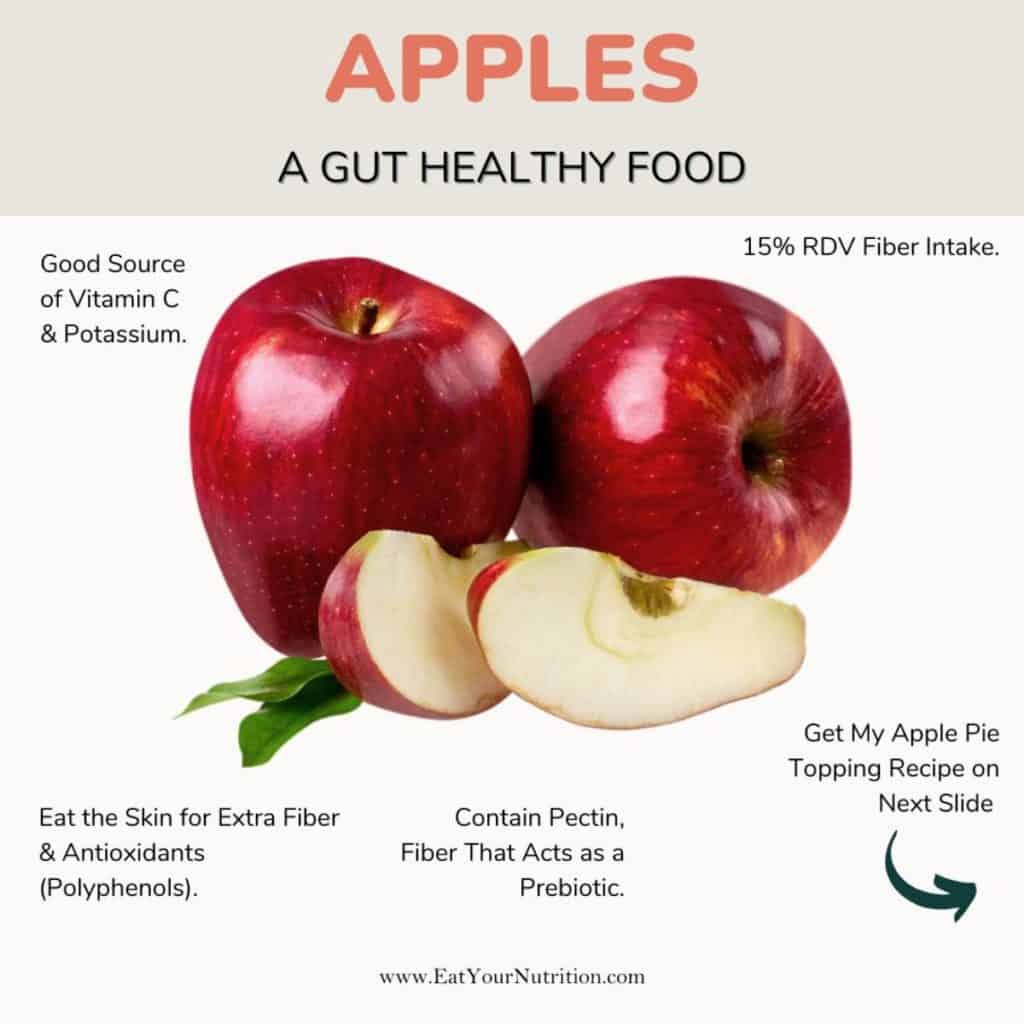
🍏 Apple Nutrition Facts, Value And Data
Here's the nutritional report of apples. Amazing nutrition facts and value you should know about apples.
*Per 1 medium apple.
Antioxidants | Phytosterols | Quercetin
- Fiber | 4 grams
- Carbohydrates | 25 grams
- Vitamin C | 9% DV
- Vitamin K | 3% DV
- Potassium | 4% DV
- Vitamin B6 | 6% DV
- Copper | 5% DV
Apple Pantry Pointer Tips
Here are some easy pantry pointer tips on how to store, eat, and take care of apples.

🍎 Apple Eating Suggestions
Try pairing apples with raw walnuts. Studies have shown that phytochemicals in walnuts boost the action of quercetin, an antioxidant phytochemical found in the skins of apples, which helps block UV damage.
Buy apples that are unbruised, firm, and have good color.
Take them out of their plastic bag and store them in your refrigerator - loose in the produce bin or in a paper bag is best. And since they absorb odors, keep them away from strong-smelling foods like garlic and onions.
😋 Delicious Apple Recipes
Do you want to try out some delicious recipes made with apples?
🗣️ Let's Discuss Apple Nutrition And Health Benefits!
I would love to hear what your favorite apple recipe is. Did you learn anything new about the nutritional facts and value of apples? What about the health and beauty benefits of apples? Let me know in the comments below.
You can also connect with me @EatYourNutrition on Instagram. I love seeing your photos. #EatYourNutrition #LauraVillanueva
📚 References
- Boyer J., Liu R. Apple phytochemicals and their health benefits. Nutr. J. 2004;3:5. doi: 10.1186/1475-2891-3-5.
- Butland B.K., Fehily A.M., Elwood P.C. Diet, lung function, and lung function decline in a cohort of 2512 middle-aged men. Thorax. 2000;55:102-108. doi: 10.1136/thorax.55.2.102.
- Mlcek J, Jurikova T, Skrovankova S, Sochor J. Quercetin and Its Anti-Allergic Immune Response. Molecules. 2016;21(5):623. Published 2016 May 12. doi:10.3390/molecules21050623














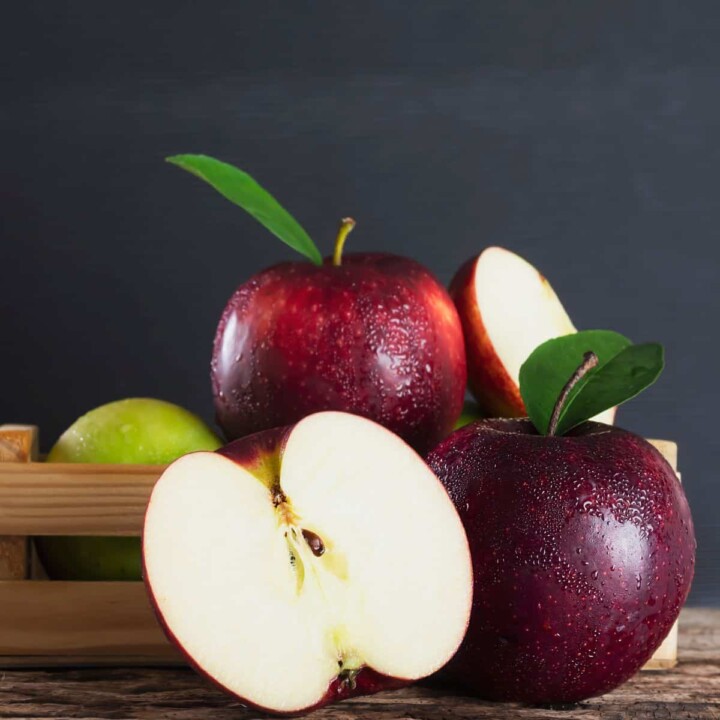
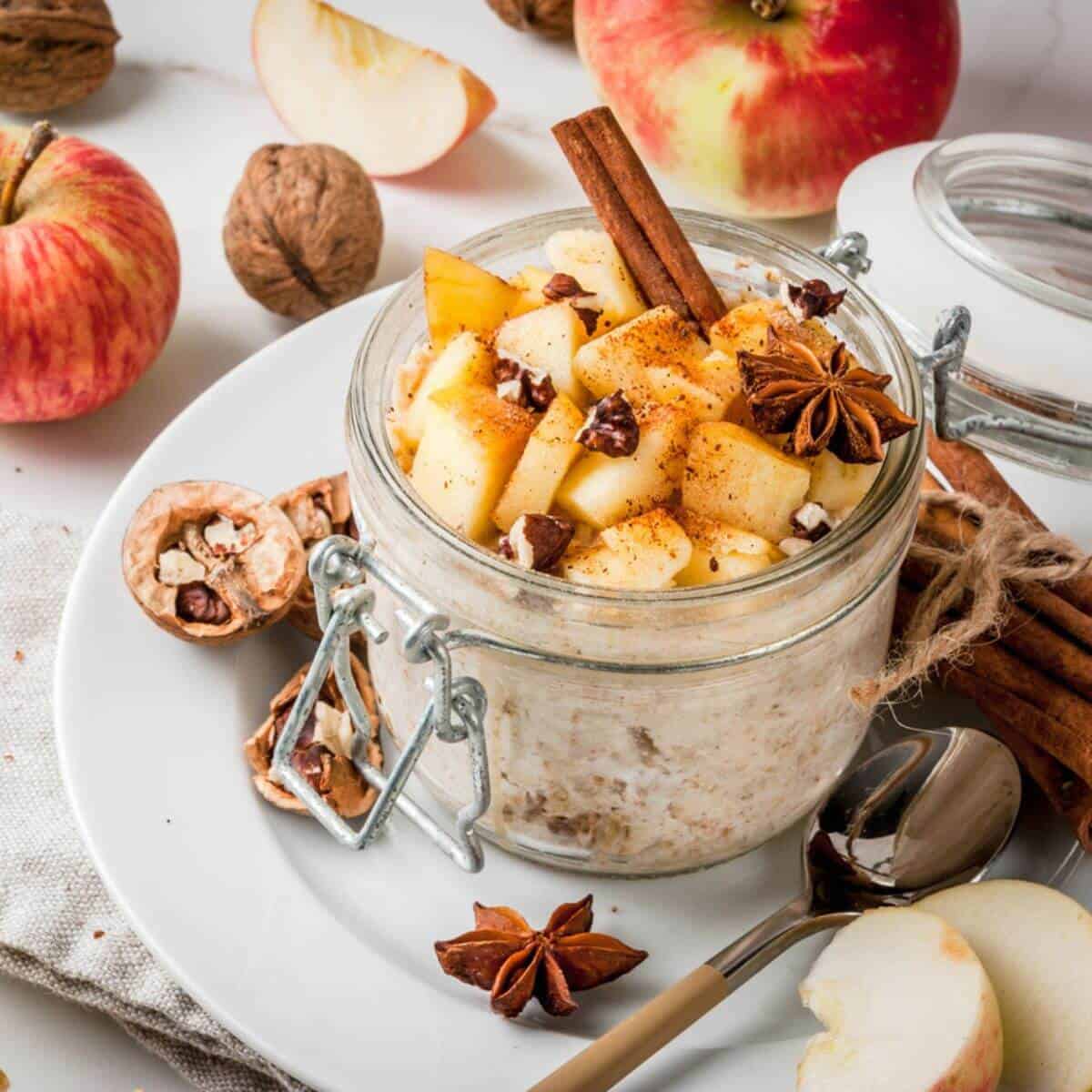

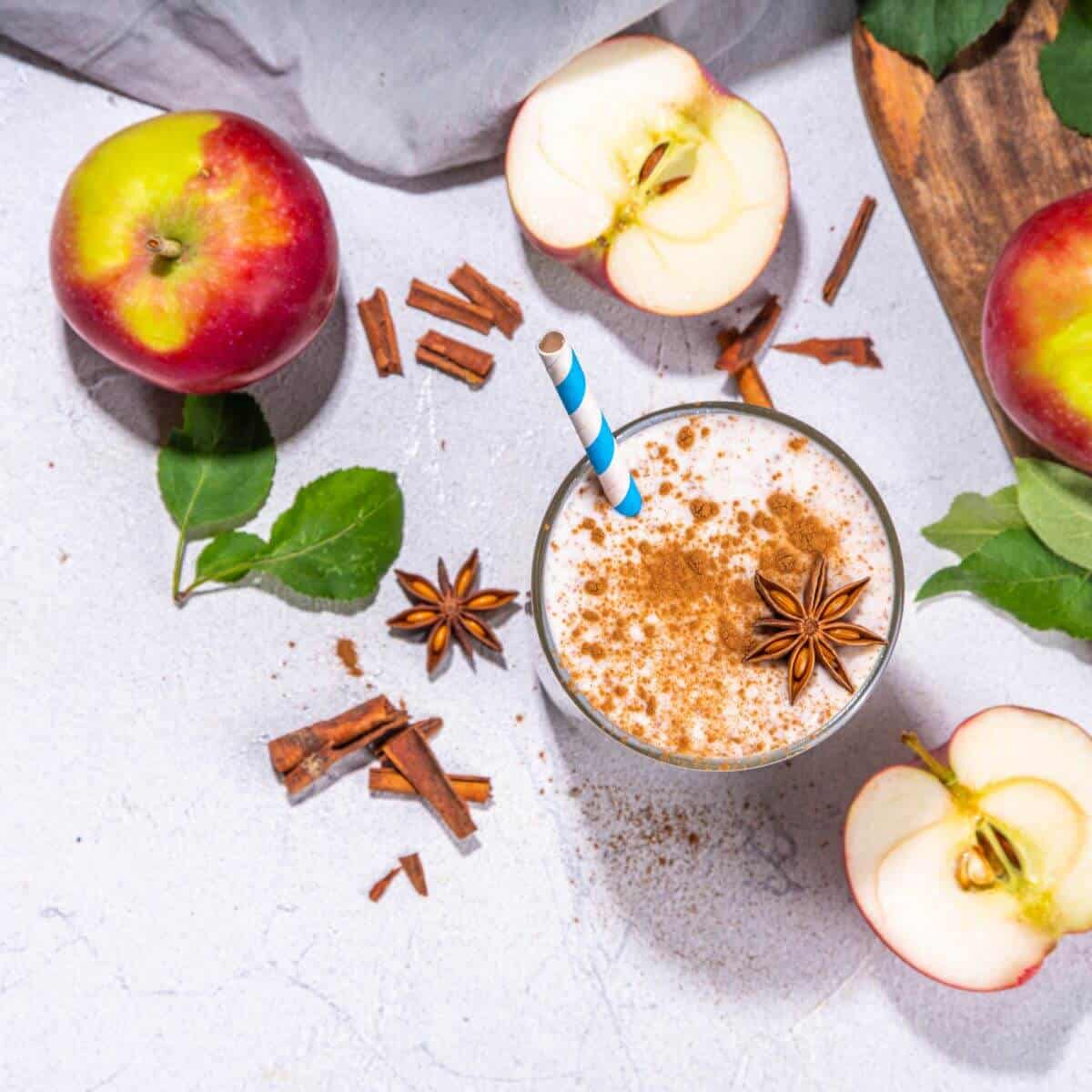
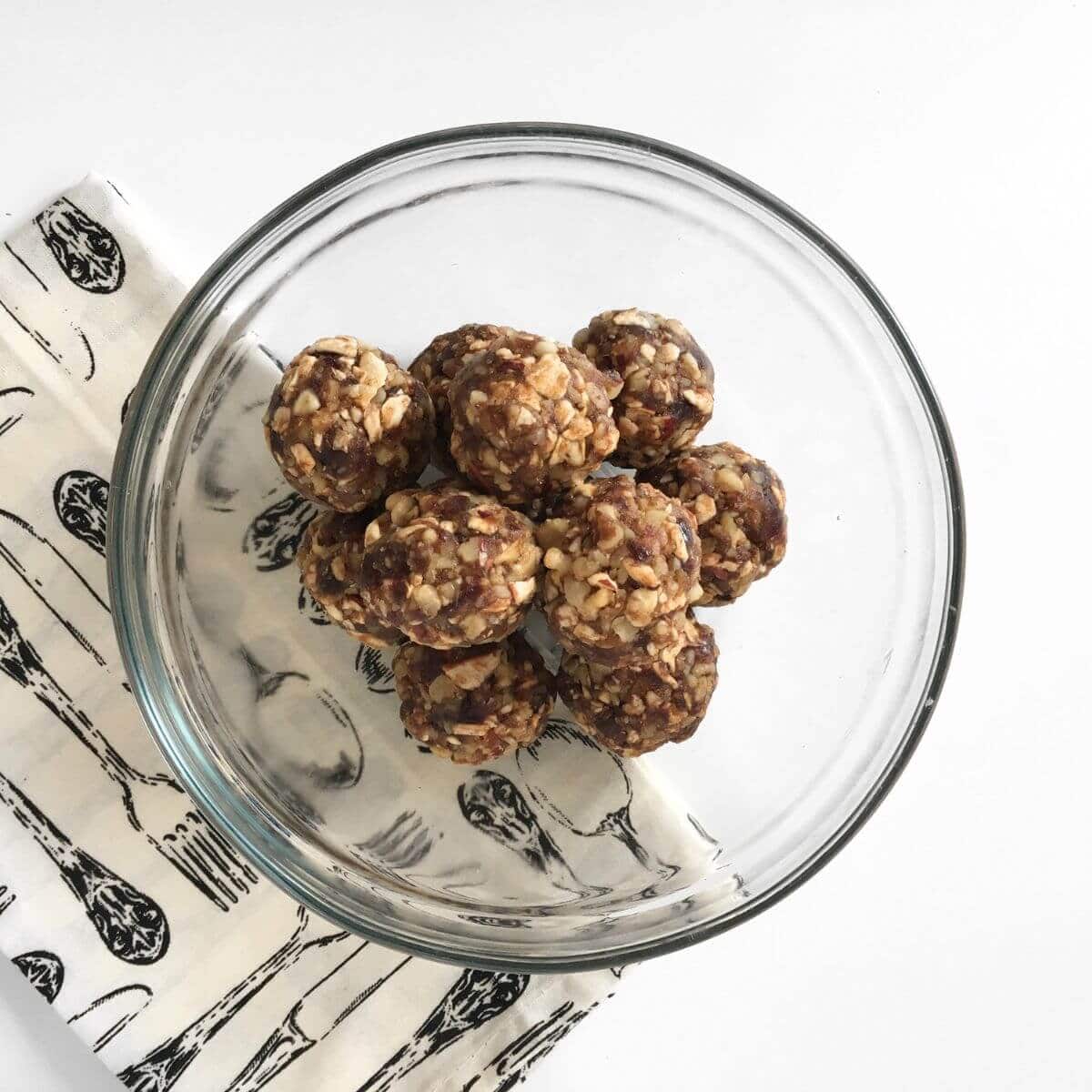
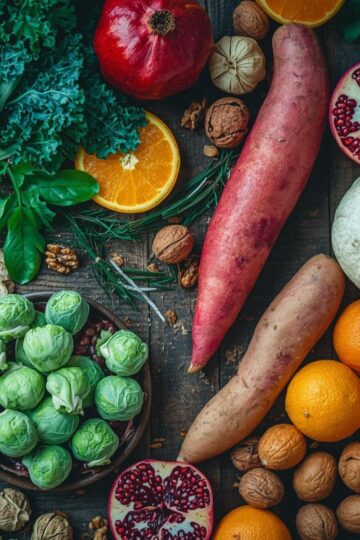
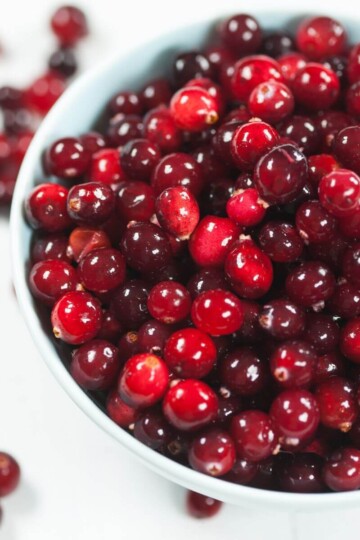

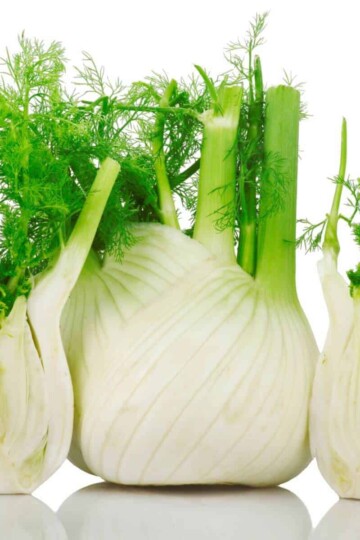
Comments
No Comments